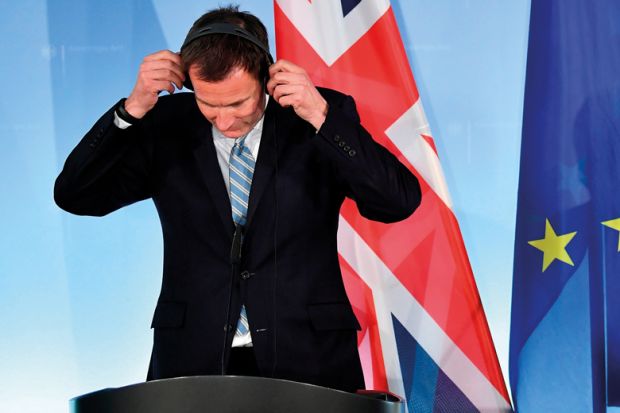Universities should change their approach to disseminating research and operate more like thinktanks if they want to get into the minds of government leaders and influence policy, according to a former UK senior civil servant.
Addressing academic leaders at an event organised by the Higher Education Policy Institute, a panel of experts called on educators to help bridge the divide between the “two separate cultures” dividing academia and UK policy.
Iain Mansfield, a governor for Bath Spa University and a former senior civil servant at the Department for Education, said that looking up academic articles was “not a natural part of the job” of civil servants, meaning relevant research that could be vital for decision-making was being largely ignored.
“We do look at evidence, but we look at thinktanks,” he admitted. “Why do we like thinktanks so much when UK universities contain far more expertise? Because the best thinktanks do good research and synthesise it into nicely packaged reports – they speak our language, and we can read it and use it.”
Universities should therefore set up research centres that speak politicians’ language, he advised. “Essentially, to get your research into policy you need to operate a little like a thinktank. Setting up centres can have a hugely disproportionate impact on policy…it will lead to better policymaking and help you in the [research excellence framework] as well,” he concluded.
Mr Mansfield also suggested that greater mutual understanding between the two sectors could be achieved by universities “offering a postdoctorate student free of charge to work in the relevant [policy] department for three months”.
This type of secondment would be welcomed by civil servants, who he said would value the input in the run-up to publishing a white paper, for example, but “do not have the resources to pay for it” themselves.
His idea was shut down as impractical, however, by Kathryn Oliver, associate professor of sociology and public health at the London School of Hygiene and Tropical Medicine. “I love the idea of postdoctorates going on secondment, but it’s much more complicated than that,” she said, questioning how universities and individuals would afford it. “Why would they choose to spend time away from their studies with no obvious benefit to them?”
Dr Oliver agreed that academics could do more to influence policy and get their views heard, however. “The REF and the impact agenda more broadly undeniably bring more pressure on us to think about how we go about policy and practice,” she said. “Building relationships” as well as making research outputs “relevant and usable”, turning them into “something people can find and understand how to engage with”, were key to making experts’ findings visible in the policy sphere.
Diana Beech, the policy adviser to Chris Skidmore, the universities minister, warned that her experience of moving from academia to policy had been fraught with criticism from both sides, she added, illustrating the lack of understanding between the two cultures.
“I was branded a ‘failed academic’ by some of my friends,” she said. “To academics…I had to prove what I was doing was worthy, and to my policy friends I had to convince them I could break through the barrier.”
But the “two cultures” perception, “with academia on the one hand and policy on the other…does a disservice to what policymaking is,” she concluded. “I think it’s not so black and white.”





